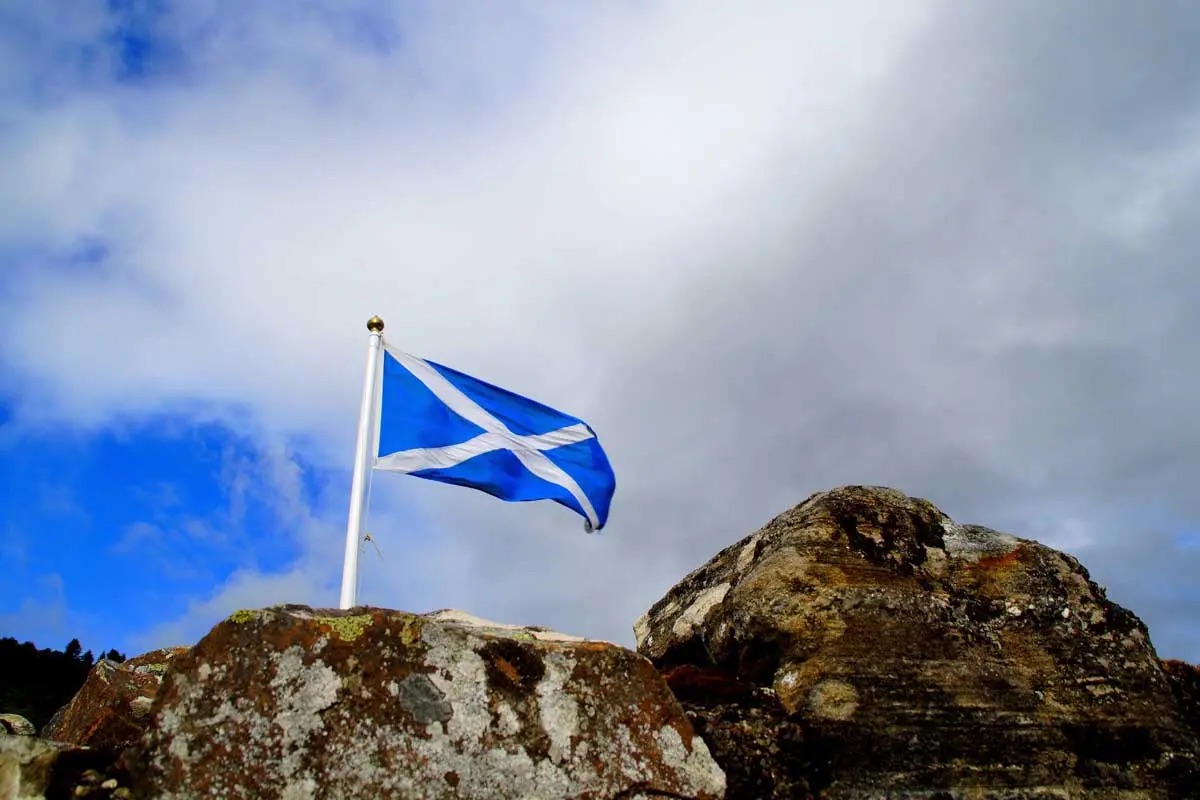
Writer: Felix Zhang, Editor: Andrew Ho
Scotland finds itself confronted with a difficult decision: should it remain part of the United Kingdom or reclaim its independence? It is a challenging question that the people and government of Scotland must face as they weigh the political, social, and economic implications of self-governance. Scotland has long maintained a unique identity from the United Kingdom, stemming from its history as an independent state. Despite a contentious history with England, the 1707 Acts of Union united England with Scotland and Wales, leading to the early formation of the United Kingdom. Since then, Scotland, with its population of roughly 5 million, has been an integral economic and social part of the United Kingdom, serving as a dominant driver of energy, tourism, and finance.
Much of the discourse on Scottish independence revolves around the principle of self-determination—that independence would grant Scotland control over its resources and policies. Under the United Kingdom, much of Scotland’s most lucrative industries do not fully benefit the people of Scotland. Tax revenues from Scotland’s oil and gas industry, which accounts for roughly 80% of the UK’s total oil and gas production, directly benefit the UK government, not the Scottish government. Other industries, such as mining, quarrying, and shipbuilding, are larger in Scotland per capita compared to the rest of the United Kingdom. Scottish independence would allow Scotland to control the management and taxation of its resources. Meanwhile, the Scottish parliament has many restrictions over the policies it can enact while being forced to run a balanced budget. As an independent state, Scotland would have the ability to change its laws on taxation and run a deficit on its budget, if necessary.
A potential issue that Scotland would face under independence concerns tax revenue and government spending. Compared to the rest of the UK, government spending is higher in Scotland, particularly in education and healthcare, while taxation from Scottish individuals is slightly lower. Therefore, an independent Scottish government would face the challenge of running a reasonable budget, which would require raising taxes or cutting spending. There are other sources of revenue, such as oil taxes, that Scotland would gain control over under independence, which could help reduce these budget concerns. However, Scottish independence would likely also require that Scotland assume a part of the United Kingdom’s debt, which currently sits at roughly 100% of the UK’s current GDP. This would be a challenging negotiation and place immediate constraints on Scotland as an independent country.
Another significant economic concern about Scottish independence is the currency the state would use under independence. While the Scottish National Party’s official stance during the 2014 referendum was that they would stay under the British Pound Sterling monetary union, the UK government stated they would not be open to this option. Scotland would be free to create its own currency with its own central bank while pegging its currency to the Pound, Euro, U.S. Dollar, or basket of currencies. However, a pegged currency would require Scotland to adhere to a relatively disciplined approach to monetary policy in order to maintain the exchange rate with whatever currency it would be pegged to. Meanwhile, an independent floating currency would enable a hypothetical National Bank of Scotland to implement monetary policy autonomously in response to economic or financial shocks. Alternatively, Scotland might choose to try to join the Eurozone.
The vote on Brexit has had a significant impact on Scottish perspectives about their independence. In Scotland, 62% of the electorate voted to remain within the European Union, the highest by far compared to England, Northern Ireland, and Wales. This vote indicates that Scotland wishes to maintain trade relationships with the European Union, and if it were independent, Scotland would likely pursue admission. However, there are no guarantees as to whether Scotland would be welcomed into the EU, as the nature of Scotland’s independence would be unprecedented. While many countries have broken off in the past, these fragmentations have predominantly been driven by global or civil conflict or economic strife. The economies of both Scotland and the rest of the United Kingdom are strong, and the nationalist and independence movements in Scotland are peaceful and non-militarized. This makes Scottish independence nearly incomparable in scope to anything that came before it, such as the guerilla battles that took place during the Irish independence movement from the United Kingdom over 100 years ago. The success of such an independence movement under what seems to be relatively strong political and economic conditions would be groundbreaking: certain member states of the European Union might fear that the success of a succession movement could cause such movements within their own country, such as Catalonian independence in Spain. Despite its robust economy, Scotland may face obstacles entering the European Union due to concerns about implications for other countries with active or developing independence movements.
Furthermore, while increased trade with the EU would likely benefit Scotland’s economy, it could jeopardize its trade relations with the rest of the United Kingdom. Over 60% of Scottish exports are to the rest of the United Kingdom, while just under 20% are to the European Union. It is uncertain how trade between Scotland and the rest of the UK would be affected by Scottish independence. In a worst-case scenario, a spiteful United Kingdom may choose to implement tariffs and taxes on certain goods, leading to a significant decrease in Scottish exports. More realistically, it is unclear what additional barriers to the movement of goods and people would be put in place, which could disincentivize cross-border movement. Shifting from a UK-centric economy to an EU-centric economy would take time, potentially having asymmetric impacts across different industries and sectors.
Scottish opinions of staying in the UK have changed considerably over time. While just 10% of Scots favored independence in the early 1980s, this number rose to 30% by the end of the decade. Significant devolution took place in 1998 when Scotland voted for and gained its own parliament, granting limited decision-making over policies in education, environmental laws, culture, internal economic development, and provision of services. While any issue can be debated in the Scottish Parliament, it often has to defer to London due to constraints on legislative powers. A decade after the establishment of the Scottish Parliament, the Scottish National Party, supporting nationalism and independence, rose to become the most prominent party in the nation and has been in power of the Scottish Parliament since. In 2014, an official vote over independence was held, with 44.7% of Scots supporting independence in the referendum. Meanwhile, calls for a new referendum have continued a decade later, and with significant political, economic, and social changes across the United Kingdom and within Scotland, public sentiment has shifted, with polling showing a nearly 50-50 split over the issue of Scottish independence.
It is also interesting to understand the geography of those supporting versus opposing independence. In Glasgow, Scotland’s largest city, 53.5% of individuals voted yes in the 2014 referendum for independence, while in Edinburgh, Scotland’s capital and second largest city, just 38.9% of individuals voted yes. This may reflect general trends experienced in the economies of the two cities. Edinburgh has enjoyed recent economic success, becoming the second largest financial hub of the United Kingdom behind London, while enjoying the benefits of tourism from the rest of Britain. Meanwhile, Glasgow, previously considered the United Kingdom’s second city, has experienced significant economic decline, as industries such as shipbuilding have become less competitive in the late 20th and 21st centuries. Glasgow has fallen on tough times, with the city experiencing slowed population growth and significant deaths from drug and alcohol abuse. The stark difference in opinion in Scotland’s two largest cities perhaps reflects the two common sentiments among Scottish citizens. Some, such as those living in Edinburgh, feel that being part of the United Kingdom is crucial to their economic success and growth. Others, such as those in Glasgow or Dundee, another struggling industrial city where 57.3% of individuals voted for independence, may feel as if the government of the United Kingdom has neglected their issues and an independent Scotland could help focus more resources on revitalizing their community. The separate history and identity that many Scots identify with certainly play into their perspectives on independence and shape their views on the British government.
As is typical with most political issues, economic outcomes will largely dictate whether or not Scotland will choose independence. Importantly, independence would give Scotland control over its domestic industries, while the government could implement its own political and economic policies and taxation regime. Furthermore, independence might allow Scotland to regain economic ties with the EU that were severed under Brexit, although Scottish-EU relations remain undetermined under potential Scottish independence. On the other hand, Scottish independence would place important questions about Scotland’s current major trade ties with the rest of the United Kingdom, with most of its exports and imports coming from the rest of the UK. Additionally, it is unclear what currency Scotland would move to under independence and how its institutions currently associated with the UK would have to be changed or removed. The road to Scottish independence is not guaranteed, and the public and government face significant decisions and negotiations while moving towards a decision. Importantly, Scottish independence could mark a shift in how we view the future of nations. While the past centuries have seen the consolidation of city-states into larger countries and the past decades, have seen the growth of monetary and economic unions, reflecting the rise of globalization, the Scottish independence movement perhaps reflects the rebirth of nationalist identity in the 21st century. The next independence referendum is sure to draw attention from the international community, as it could have significant economic and political implications for independence movements across the world.
Featured image by GBMag and Pixabay



